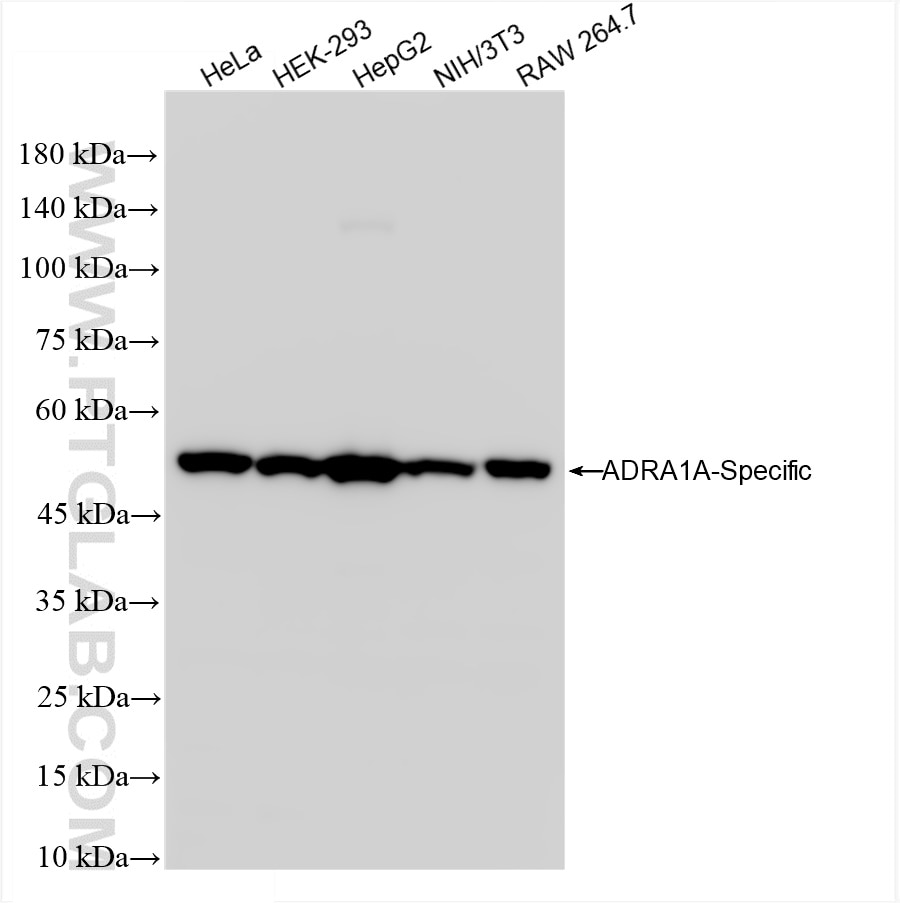Tested Applications
| Positive WB detected in | HeLa cells, HEK-293 cells, HepG2 cells, NIH/3T3 cells, RAW 264.7 cells |
Recommended dilution
| Application | Dilution |
|---|---|
| Western Blot (WB) | WB : 1:5000-1:50000 |
| It is recommended that this reagent should be titrated in each testing system to obtain optimal results. | |
| Sample-dependent, Check data in validation data gallery. | |
Product Information
85351-1-RR targets ADRA1A-Specific in WB, ELISA applications and shows reactivity with human, mouse samples.
| Tested Reactivity | human, mouse |
| Host / Isotype | Rabbit / IgG |
| Class | Recombinant |
| Type | Antibody |
| Immunogen |
Peptide Predict reactive species |
| Full Name | adrenergic, alpha-1A-, receptor |
| Calculated Molecular Weight | 51 kDa |
| Observed Molecular Weight | 52 kDa |
| GenBank Accession Number | NM_000680 |
| Gene Symbol | ADRA1A |
| Gene ID (NCBI) | 148 |
| Conjugate | Unconjugated |
| Form | Liquid |
| Purification Method | Protein A purification |
| UNIPROT ID | P35348 |
| Storage Buffer | PBS with 0.02% sodium azide and 50% glycerol, pH 7.3. |
| Storage Conditions | Store at -20°C. Stable for one year after shipment. Aliquoting is unnecessary for -20oC storage. 20ul sizes contain 0.1% BSA. |
Background Information
ADRA1A, also named ADRA1C, belongs to the G-protein coupled receptor 1 family. ADRA1A mediates its action by association with G proteins that activate a phosphatidylinositol-calcium second messenger system. Its effect is mediated by G(q) and G(11) proteins. The antibody is specific to ADRA1A.
Protocols
| Product Specific Protocols | |
|---|---|
| WB protocol for ADRA1A-Specific antibody 85351-1-RR | Download protocol |
| Standard Protocols | |
|---|---|
| Click here to view our Standard Protocols |




